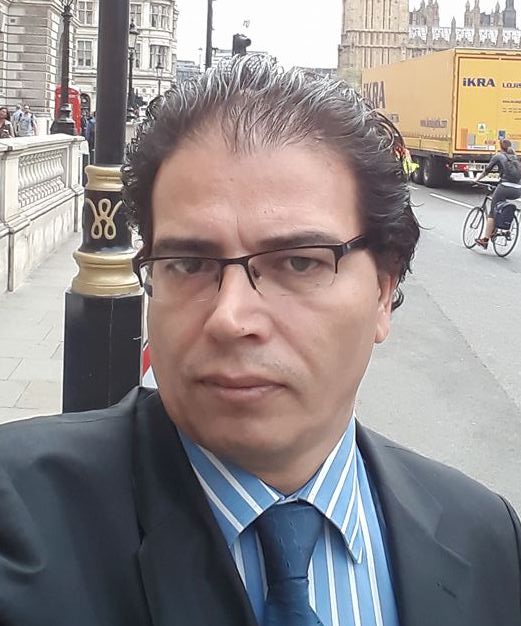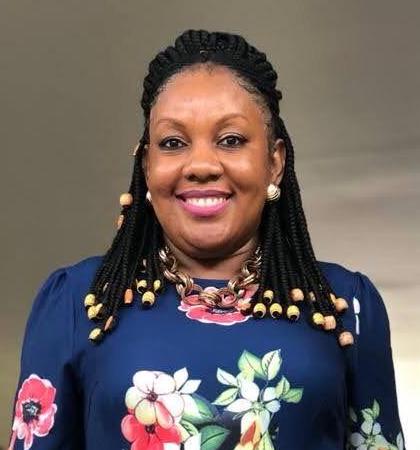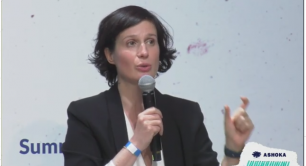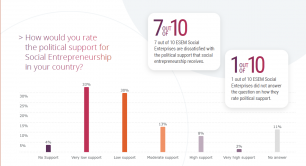Completing the circle: how training is boosting government support for social enterprise
Social enterprises are unlikely to flourish unless governments recognise their potential and create supportive policies and legislation. A new massive open online course, or Mooc, is demonstrating to thousands of civil servants, academics and others their powerful role in solving worldwide challenges and – crucially – how policymakers can nurture them.
In the face of climate change, inequality and the impact of the Covid-19 pandemic, thousands of people across the globe are imagining a better future – and they have ideas to create that future. But these ideas are likely to turn to dust unless governments lend a supportive hand.
This is why the British Council launched a new online training course in November 2021 to help create the changes in the global economy that are so urgently needed. The course is called Effective Policymaking to Build the Impact Economy and it’s a Mooc – a massive open online course – which is delivered online and available free to anyone who wants to get involved.
Juliet Cornford, the British Council’s senior consultant in social enterprise and course leader, says: “We know that all over the world, young people and social entrepreneurs are doing great things. But if policymakers don’t have the right skills and understanding, the operating environment becomes preventative. It’s about completing the circle.”
- Read: Cities of Impact, our special series exploring how a city government can help transform the economy
6,000 learners to date
To date, more than 6,000 people have enrolled on the eight-week course – and it remains open for new enrolments until 24 December 2021. The course is divided into eight modules covering topics such as inclusive and sustainable business models, the role of social finance, and how business and government can help combat climate change. Social Enterprise UK and the Social Enterprise Academy helped to develop the content.
Participants learn by watching videos, reading research, participating in quizzes, joining discussions and completing exercises. There are also three live events during the course and one of the course leaders is online every day to interact with participants.
Course leader Juliet Cornford hosting one of the Mooc's live events
Big names from the impact economy – such as Frank Aswani of the Africa Venture Philanthropy Alliance, Kerryn Krige of the International Labour Organisation, and Alex Nicholls from the Saïd Business School at the University of Oxford – share their knowledge during the course. Case studies are drawn from all over the world and include Whizkids in Ethiopia, Kids Go Coding in Bangladesh and Miss Macaroon in the UK.
Most of the participants are young, with a quarter between the ages of 18 and 25 and more than one-third in the 26 to 35-year-old age bracket. And people have joined the course from 140 countries including Nigeria, Egypt, Indonesia and the USA.
 For social entrepreneur Subhe Mustafa, who lives in Turkey, the opportunity to meet other people from around the world with the same outlook was invaluable. “I had colleagues from Rwanda, South Korea, the USA and Japan. Without the course I wouldn’t have been able to interact with all of these people. We enlightened each other,” he says.
For social entrepreneur Subhe Mustafa, who lives in Turkey, the opportunity to meet other people from around the world with the same outlook was invaluable. “I had colleagues from Rwanda, South Korea, the USA and Japan. Without the course I wouldn’t have been able to interact with all of these people. We enlightened each other,” he says.
Mustafa is a Syrian refugee, and he says that completing this training course has helped him to refine his plans for the future after many challenging years.
“I came from a war zone. Eight years ago, I was ready to die because I witnessed people being killed and things you cannot image,” he says. In Turkey he has worked hard to make new connections and to rebuild his life. In 2019 he founded a social enterprise called Market Leaders International to help other refugees integrate into the Turkish community and contribute to the economy.
“Now I am refreshed and ready for the next steps,” he says. He says that his new insights into the role that government can play in supporting social enterprise will be invaluable to him, and he’s pledged to raise awareness among his networks about the potential of social enterprise to effect change. (He’s also written a LinkedIn post about his experiences of the course.)
Deepening knowledge
While many of the participants on the course are social entrepreneurs like Mustafa, others are from intermediary organisations which support social enterprises, some are from NGOs, and others are policymakers.
 Charmaine Brimm is one of the policymaker participants. She’s a specialist in socio-economic development at the Planning Institute of Jamaica, part of the government with responsibility for developing policy around community renewal, small businesses and social enterprises.
Charmaine Brimm is one of the policymaker participants. She’s a specialist in socio-economic development at the Planning Institute of Jamaica, part of the government with responsibility for developing policy around community renewal, small businesses and social enterprises.
“Part of my excitement about the course was to learn more about the impact economy and the government’s role in trying to ensure the framework is in place,” she says. “The course was very, very relevant to me.”
She explains that, even though she has been working closely with social enterprises in Jamaica at a policy level for a long time, the course has deepened her knowledge and expanded her perspective. She particularly valued exploring different types of social finance and discovering which policies work in other countries.
“It has been a good lens on the global issues and how my country is positioned in the world,” she says.
What she’s learned on the course will have a big influence on her day-to-day work over the next few months, she says. She will be talking to the private sector about how they can adjust their business models to be more inclusive, and, as part of a forthcoming review of the Jamaican government’s strategy for small and medium sized enterprises, she plans to strengthen the recommendations for how social enterprises can be positioned as part of the impact economy.
It has been a good lens on the global issues and how my country is positioned in the world
Juliet Cornford of the British Council says that feedback from participants so far shows that they will be putting into practice their new knowledge in many different ways – from changing workplace practices around gender and people with disabilities to instigating new country-wide networks to support social enterprises.
“The course is inspiring people to think differently,” she says. “It is changing mindsets about the role that business can play in the community and the role of policymakers in supporting that.”
Don’t miss your place! Enrolment closes for Effective Policymaking to Build the Impact Economy close on 24 December 2021.



